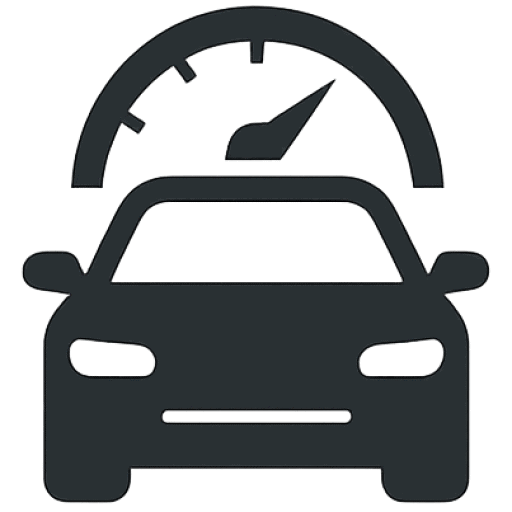If your car makes a strange noise every time you turn the steering wheel, it’s trying to tell you something and understanding what those sounds mean can save you from a much bigger repair bill down the road.
As someone who spends way too much time under the hood, I can tell you that noises during turns are among the most common (and annoying) symptoms drivers experience. Whether it’s a squeal, groan, click, or clunk, these sounds are clues pointing toward what’s happening in your steering or suspension system. Let’s break it all down in simple terms so you can know what’s normal, what’s not, and when it’s time to call a mechanic.
Common Noises You Might Hear When Turning the Steering Wheel
When you turn the wheel, you might notice one of a few types of sounds:

- Whining or groaning: A low moan or whine when turning, especially at low speeds or while parking.
- Squealing: A sharp squeak or high-pitched sound when the wheel turns.
- Clunking or knocking: A distinct knock or thud from the front end.
- Popping or clicking: A repetitive clicking sound as you turn, often more noticeable during full turns.
Each of these noises points to different parts of the steering or suspension system, and understanding what they mean can help you narrow down the cause.
1. Power Steering Fluid Is Low
One of the most common reasons for a whining or groaning sound when turning is low power steering fluid. This fluid is essential for creating the hydraulic pressure that helps you steer smoothly. When the level drops, usually due to a leak, the system pulls in air, which creates that familiar whining or moaning sound.

How to check it:
Pop the hood and locate your power steering reservoir. Most have markings that say “Min” and “Max.” If it’s low, top it off with the recommended fluid for your car (usually listed in the owner’s manual).
What it means:
If the fluid keeps getting low, there’s a leak somewhere—possibly in the hoses, pump, or steering rack. Catching it early can save you from losing full steering assist while driving.
2. Worn or Damaged Power Steering Pump
If you’ve ruled out fluid levels but still hear whining or groaning, your power steering pump might be wearing out. This pump keeps the fluid flowing under pressure, and over time, internal components can wear down, especially if it’s been running with low fluid.

How to identify it:
A failing pump often gets louder the more you turn the wheel, especially at idle or low speeds. The noise might start soft and grow worse over time.
When to see a mechanic:
If you’re hearing a consistent whining or grinding from the engine bay even after topping off the fluid, have a technician inspect the pump. Replacing it early can prevent metal shavings from circulating through your system.
3. Loose or Worn Serpentine Belt
A high-pitched squealing sound when turning the wheel—especially right when you start the car—can point to a loose or worn serpentine belt. This belt drives multiple accessories, including the power steering pump (in most cars).

How to check it:
Open your hood and visually inspect the belt. Look for cracks, fraying, or glazing (a shiny surface). If it looks old or feels loose, it’s time for a replacement.
Quick fix tip:
Sometimes the belt tensioner (a spring-loaded pulley) is the real culprit. If the tensioner isn’t keeping the belt tight, you’ll hear squealing even with a new belt installed.
4. Dry or Worn Ball Joints and Tie Rod Ends
If you hear clunking or knocking noises when turning, especially over bumps, you might be dealing with worn ball joints or tie rod ends. These parts connect your steering and suspension and allow smooth movement when turning.

How to identify it:
You might notice vague or loose steering in addition to the noise. You can sometimes feel vibration through the steering wheel or a “pop” sound when making sharp turns or going over uneven surfaces.
Why it matters:
Driving with worn joints or tie rods can lead to uneven tire wear, alignment problems, or even loss of steering control. A mechanic can check these with a simple suspension inspection.
5. CV Joints or Axles Going Bad
If your car makes clicking or popping noises during turns, especially while accelerating, your CV joints (constant velocity joints) could be wearing out. These joints transfer power from the transmission to the wheels while allowing the suspension to move.

How to identify it:
Front-wheel-drive cars often make a rhythmic clicking sound that gets faster as you accelerate through a turn. In many cases, you’ll hear it most clearly during full turns, such as when pulling into a parking spot.
Fix:
Unfortunately, once CV joints start clicking, they’re usually on their way out. Replacing the affected axle or CV joint is the only long-term fix.
6. Struts or Shock Absorbers Wearing Out
If your car creaks or groans when turning or going over bumps, your struts or shocks might be worn. These components absorb road impact and keep your tires planted firmly on the ground.

Symptoms:
You might feel the car bouncing more than usual or notice uneven tire wear. Turning while hitting bumps often makes the sound more noticeable.
When to replace:
Most struts last around 50,000 to 100,000 miles, but it depends on your driving habits and road conditions. Replacing them restores both comfort and handling.
7. Steering Rack Problems
In rare cases, the noise might come from the steering rack itself. This part converts your steering wheel motion into movement of the wheels. Over time, seals and internal components can wear out.

What it sounds like:
You might hear clunking or knocking when turning from side to side, especially at low speeds. Some drivers also report “dead spots” in steering response.
The fix:
This is not a quick DIY job. Steering rack replacements are complex and should always be done by a professional mechanic.
How to Narrow Down the Source of the Noise
Before heading to the shop, you can do a few simple checks yourself to get an idea of what’s going on.

- Listen carefully – Try to pinpoint the type and location of the sound. Is it coming from under the hood, near the wheels, or inside the cabin?
- Check fluid levels – Power steering fluid is the easiest thing to inspect and top off.
- Look for leaks – If you see reddish or clear fluid under your car near the front, it could be power steering fluid.
- Inspect belts and hoses – Worn belts or loose hoses can make a surprising amount of noise.
- Turn the wheel with the car parked – If the noise happens only when moving, it might point to suspension or CV joints. If it happens even while stationary, the issue is likely in the steering system.
When to See a Mechanic
If you’ve done the basic checks and the noise doesn’t go away, it’s time to bring in a professional. Some steering-related issues can escalate quickly and even cause loss of control while driving. Here are a few situations where you shouldn’t wait:

- The steering wheel feels stiff or jerky.
- The noise has gotten noticeably louder over time.
- You hear grinding, clunking, or popping when turning at any speed.
- There’s visible leaking fluid or a burning smell under the hood.
- The car feels like it’s pulling or drifting when you turn.
A good mechanic can diagnose the issue in minutes using a stethoscope tool or by lifting the car to inspect suspension components.
How to Prevent Steering Noise in the Future
A little maintenance goes a long way. Here are a few habits that help prevent steering noise from returning:
- Check power steering fluid regularly. Top it off before it gets too low.
- Replace belts and hoses on schedule. They wear down faster than most people realize.
- Inspect your suspension annually. Worn ball joints and tie rods often go unnoticed until it’s too late.
- Avoid holding the wheel at full lock. Turning the wheel all the way and keeping it there puts stress on the pump and hoses.
- Get alignments after hitting curbs or potholes. This keeps the steering system in proper shape and reduces wear.
Final Thoughts
Noises when turning the steering wheel are your car’s way of saying something needs attention. Whether it’s a simple fluid top-up or a deeper issue like a worn CV joint, the key is not to ignore it.
Most of these problems start small and inexpensive to fix but can snowball into major repairs if left unchecked. So the next time your car groans, squeals, or clunks during a turn, take a few minutes to inspect it—or let a trusted mechanic take a look.
A quiet steering wheel isn’t just about comfort. It’s about safety, control, and keeping your car running smoothly for years to come.
You Might Also Be Interested In:
- Top Signs Your Suspension Needs Repair
- Why Your Car Vibrates When You Brake
- How to Tell When Your Power Steering Pump Is Failing
- The Most Common Reasons for a Check Engine Light
Let’s Talk Cars
Have a question? A suggestion? Just want to say hi?
You’re in the right place.
Use the form below to reach out to the AutoSpecs Daily team. We're happy to hear from readers, car lovers, first-time buyers, and anyone who's got something to share.
What can you contact us about?
- Feedback on one of our articles
- Ideas for new topics you'd like us to cover
- Questions about cars, gear, or general auto advice
- Media, partnership, or brand inquiries
- Anything else that's on your mind
We check every message that comes through and do our best to respond within 2 to 3 business days.
We don’t list an email address here to avoid spam, but the contact form is the best and fastest way to reach us.
Thanks for stopping by. We're glad you're here.

